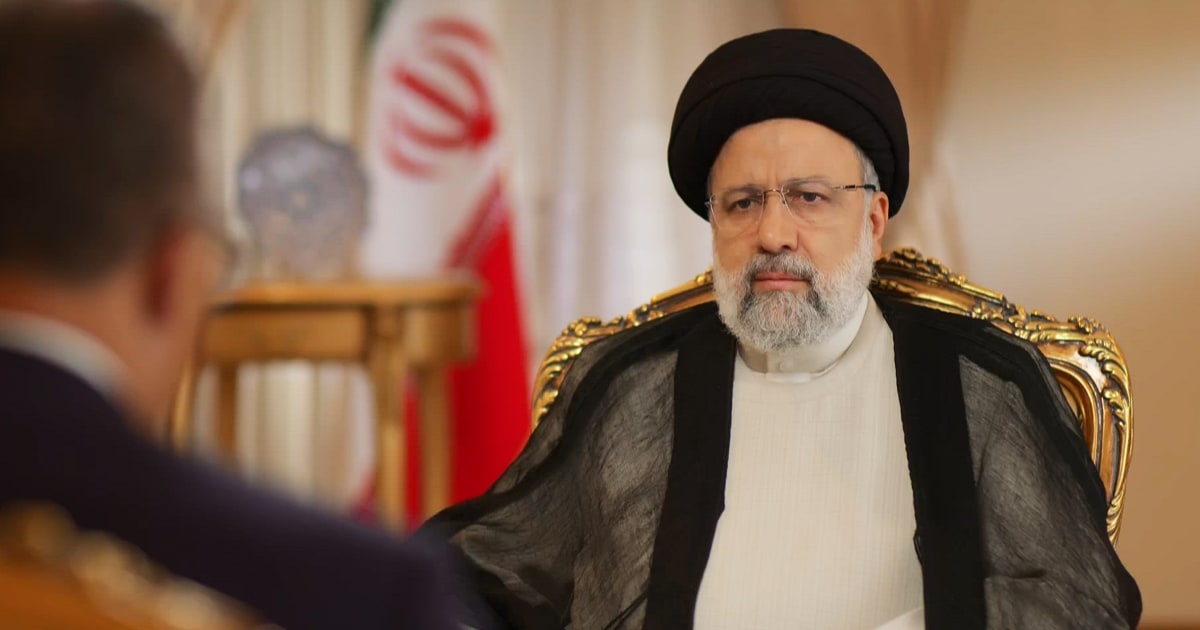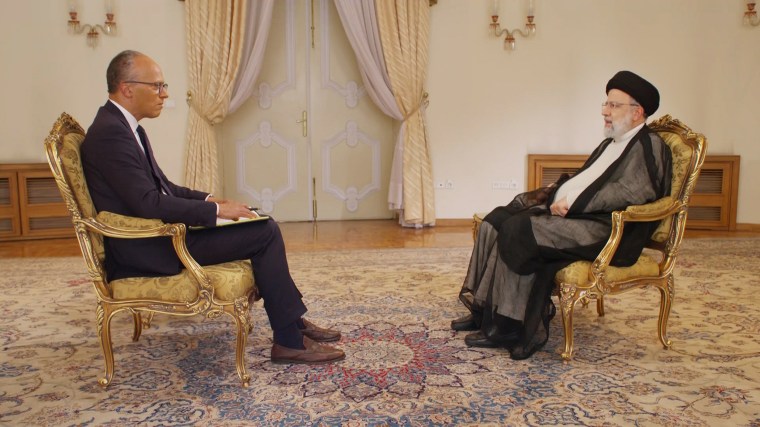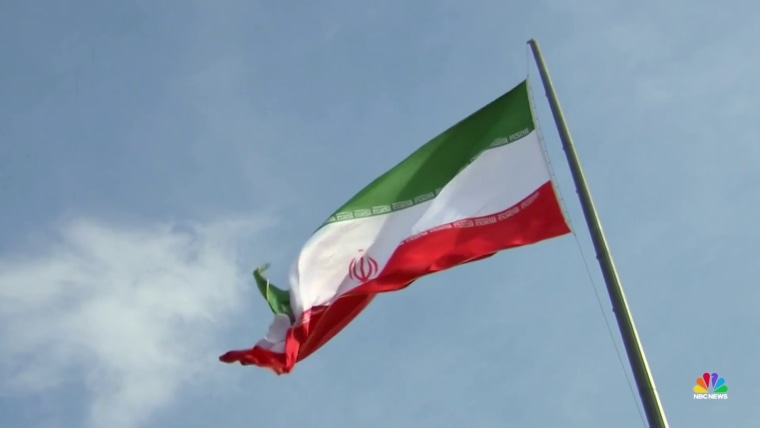#Iranian president says Tehran will spend the $6 billion released in prisoner exchange ‘wherever we need it’

Iranian President Ebrahim Raisi said his government will decide how it will spend $6 billion in previously frozen funds due to be released in a prisoner exchange agreement with the U.S., telling NBC News’ Lester Holt that the money will be spent “wherever we need it.”
In an exclusive interview in Tehran, Raisi suggested that the Americans held in Iran would be coming home soon, saying that the U.S.-Iran prisoner exchange deal would be completed in “due time” and that the American detainees were “very healthy.”
Under the arrangement, Tehran will be granted access to the roughly $6 billion in Iranian oil revenues that were blocked in South Korean banks because of U.S. sanctions. But U.S. officials say Qatar’s central bank will oversee the funds and Iran will be permitted to use the money only for humanitarian purposes in accordance with U.S. sanctions.
In response to Raisi’s remarks, a senior Biden administration official said the released funds would first be transferred to Qatar. The Treasury Department would then track all transactions closely to ensure the money is used exclusively for humanitarian purposes.
“It’s going to be held in a bank in Qatar and each transaction will be monitored by U.S. Treasury — transaction by transaction,” the official said. “It’s for humanitarian aid only.”
The State Department said the U.S. could freeze the released funds again if Iran tried to spend the money in violation of U.S. sanctions.
“The money can only be used for humanitarian purposes, and we will remain vigilant in watching the spending of those funds and have the ability to freeze them again if we need to,” State Department spokesperson Matt Miller told reporters.
Critics of the deal argue that by giving Iran access to the blocked funds, the Biden administration is allowing Tehran to free up other money that it could use to buy weapons or back proxies in the Mideast.
In the interview, Raisi said that Iran would have “authority” over how the funds would be spent. “This money belongs to the Iranian people, the Iranian government, so the Islamic Republic of Iran will decide what to do with this money,” he said, according to an Iranian government translator.
Asked if the money would be used for other purposes apart from humanitarian needs, Raisi said: “Humanitarian means whatever the Iranian people needs, so this money will be budgeted for those needs, and the needs of the Iranian people will be decided and determined by the Iranian government.”
The prisoner exchange calls for the release of five American citizens held in Iran in return for five Iranians under detention in the U.S., and also grants Tehran access to the $6 billion in oil revenues that have been blocked.
The five American prisoners were placed under house arrest Aug. 10 as a first step in the agreement, with their release contingent on the transfer of the funds from South Korea to Qatar’s central bank.
The Biden administration informed Congress on Monday that it had taken concrete steps to clear the way for the prisoner exchange, issuing a waiver that allows international banks to transfer the $6 billion to Qatar without the threat of U.S. sanctions.
Although Raisi said the five American prisoners were well, their families say they have been subject to lengthy interrogations and mistreatment. Siamak Namazi, who has been imprisoned in Iran since 2015, has said he was held in solitary confinement for the first 27 months of his incarceration. Babak Namazi, his brother, has said that Namazi was subject to beatings.

Iran says it has treated the Americans lawfully and humanely, rejecting accusations from the United Nations and human rights groups that the Americans were detained on false charges. NBC News first reported on the prisoner exchange negotiations in February.
Asked about claims that Iran is providing Russia with drones that Moscow is using in Ukraine, Raisi said Kyiv has yet to provide Tehran with evidence and documents proving the allegation.
Moscow and Tehran have forged stronger military and economic ties as the U.S. and Europe have sanctioned both countries. And the U.S., Ukraine and European governments say Iran has provided armed Shahed drones to Russia, which uses them to strike civilian buildings and infrastructure in Ukraine.
In presentations to foreign government officials and reporters, U.S. Defense Intelligence Agency analysts have displayed remnants of Iranian drones they say were found in Ukraine, as well as a largely intact drone recovered from an Iranian air attack in Iraq’s Kurdish region. The two drones recovered in Ukraine and Iraq looked identical, with the same triangular design, wingspan, fiberglass fuselage and rudimentary propeller motor at the rear.
In the interview, Raisi repeated Iran’s stance that though Tehran has defense cooperation agreements with Russia, it has not provided them with weapons used in Moscow’s war against Ukraine. “We have no role in [the] Russia-Ukraine war,” Raisi said.
If you liked the article, do not forget to share it with your friends. Follow us on Google News too, click on the star and choose us from your favorites.
For forums sites go to Forum.BuradaBiliyorum.Com
If you want to read more News articles, you can visit our News category.





